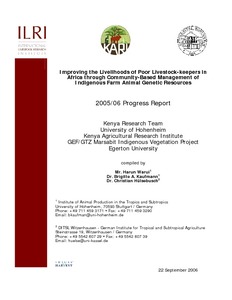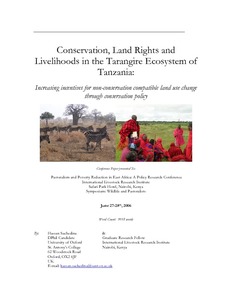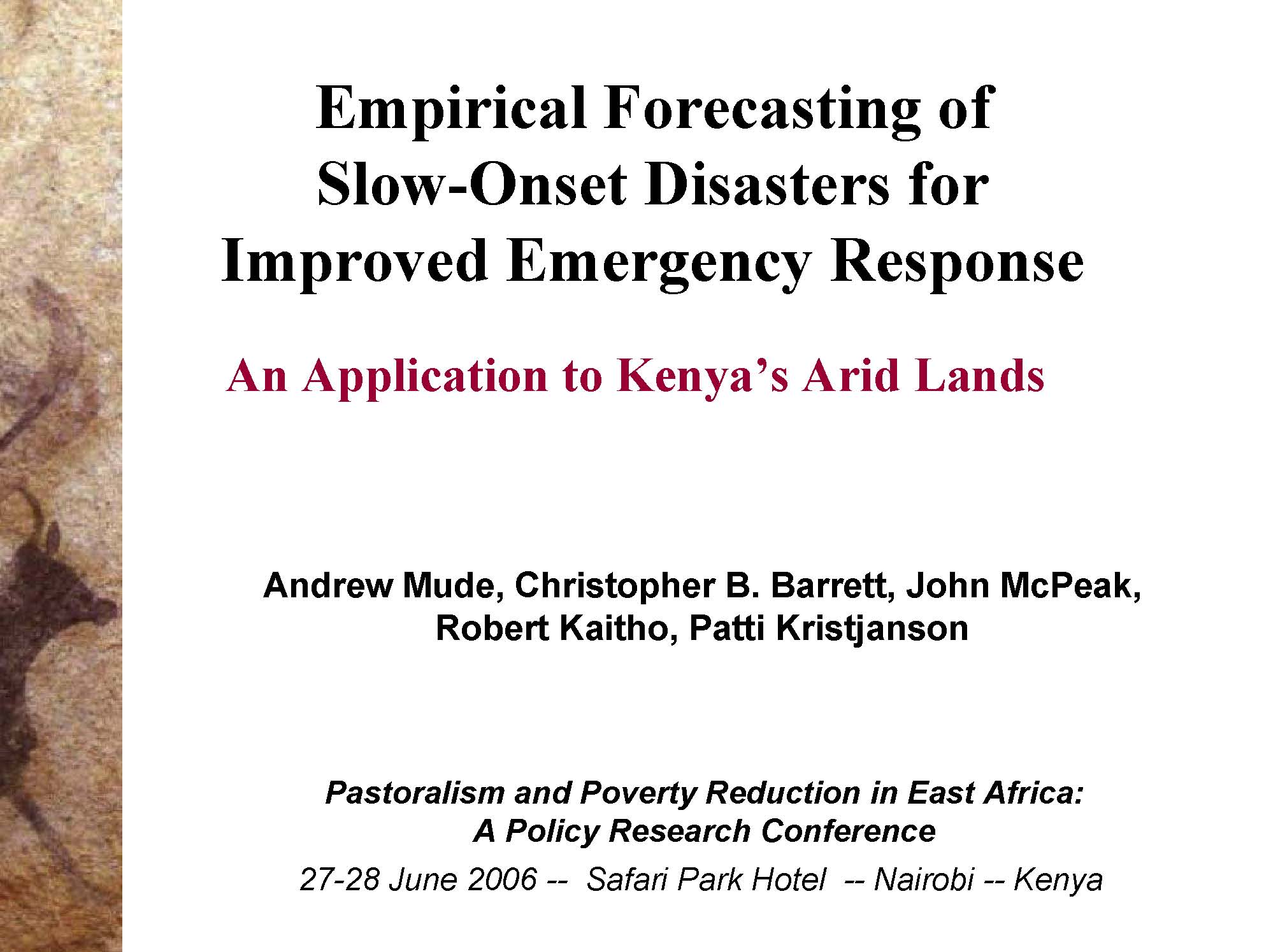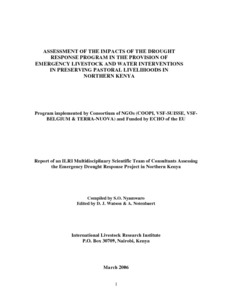Décret n º 2006-411/ PRES/PM/MRA du 11 septembre 2006 portant organisation du Ministère des ressources animales.
Le présent décret porte organisation du Ministère des ressources animales.
Lawyers in Neoliberalism. Authority’s Professional Supplicants or Society’s Amateurish Conscience?
A wide-ranging valedictory lecture by the veteran radical land guru. Offers glimpses of the role of law in Tanzania’s jump from the frying pan of state nationalism into the fire of corporate neoliberalism. Argues that the creation of ‘free’ labour and of land as capital were central to the colonial project. Examines the changing status of customary titles and the series of Land Acts from 1999. Argues that De Soto’s current Mkurabita project will in effect mean registering large chunks of village land in preparation for their alienation through force, fraud, and corruption.
Conservation, land rights and livelihoods in the Tarangire ecosystem of Tanzania: Increasing incentives for non-conservation compatible land use change through conservation policy
Empirical forecasting of slow-onset disasters for improved emergency response: An application to Kenya’s Arid Lands
Cattle breeding strategies using genetic markers as a pathway for improving competitiveness of pastoral systems in Kenya
Pastoralism and poverty reduction in East Africa: Policy briefs
Assessment of the impacts of the drought response program in the provision of emergency livestock and water interventions in preserving pastoral livelihoods in northern Kenya
Land, the Environment and the Courts in Kenya
This is an examination of the interface between land and environmental conservation in Kenya. Part II examines the different regimes of land tenure and their implications for environmental conservation. It also reviews the powers of the state to regulate land use. Part III reviews the legislative framework for environmental conservation in Kenya. Part IV reviews the case law on land and the environment. Part V concludes.
Ambivalence and contradiction. A review of policy environment in Tanzania in relation to pastoralists.
In order to address this problem and to guide its policy advocacy work, the ERETO project commissioned a study to review existing and planned policies and laws that currently touch upon pastoralism and analyse how they actually impact, or are likely to impact, on pastoral and agro-pastoral livelihoods. The policies and laws reviewed include those dealing with overall national development, those specific for the livestock sector, those dealing with access to pastoral resources, those dealing with conservation of wildlife and other natural resources, and those dealing with decentralisation a
Conservation outside of parks: Attitudes of local communities in Laikipia, Kenya
Between 1999 and 2002, interviews were conducted in Laikipia District to examine whether pastoralists also experience conflict, and to determine whether wildlife conservation provided appreciable benefits to residents, or fostered pro-conservation attitudes
Subdividing the commons: The politics of property rights transformation in Kenya's Maasailand
This paper discusses the internal processes and decisions that characterized the transition from collectively held group ranches to individualized property systems among the Maasai pastoralists of Kajiado district in Kenya. It addresses the question of why group ranch members would demand individualized property systems, but then turn against the outcome. In addressing this puzzle the paper discusses the process of land allocation and distribution during group ranch subdivision.









